The cost of local SEO services in 2024 depends on market competitiveness and service requirements. On average, businesses can expect to pay anywhere from $500 to $2,500 monthly for local SEO services. Factors such as the industry, the size of the target market, and the scope of the SEO campaign can all impact the overall cost.
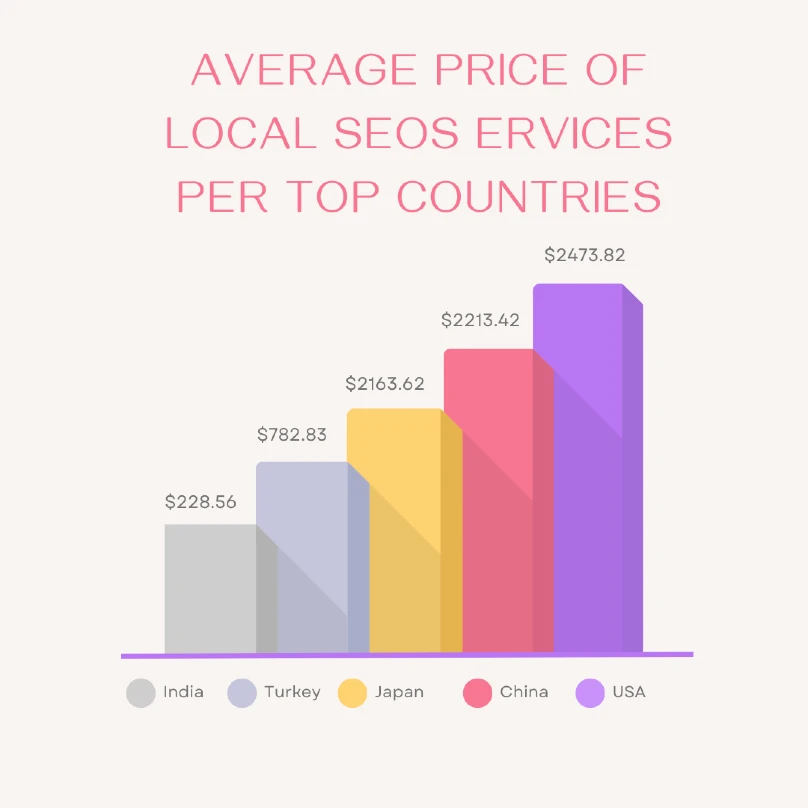
What Factors Contribute to Local SEO Pricing?
Business Industry
Different industries have different levels of competition and keywords relevant to their field, which affect the complexity and scope of the SEO work required.
A local restaurant may have a more straightforward local SEO strategy compared to a competitive real estate agency. However, the business type is just a small factor, that helps SEO agencies create estimates. While a business niche plays a crucial role, the business location is kept in mind.
Populated areas are often filled with multiple businesses, that sell the same product, bringing higher competition, but the same demand for the product or service.
Business Goals and Objectives
When it comes to local SEO pricing, business goals and objectives play the most significant role. Businesses with specific goals, such as dominating the local search results for multiple keywords or targeting a highly competitive market, will require more comprehensive and intensive strategies.
This may include extensive keyword research, content creation, link building, and ongoing optimization efforts, all of which can contribute to a higher pricing structure. Additionally, businesses with clear objectives for driving specific outcomes, such as increasing website traffic or generating more leads, may also require custom-tailored SEO campaigns that can drive results, further impacting the overall pricing.
However, for businesses with more modest goals and objectives, such as simply improving their local visibility or targeting a niche market, the pricing for local SEO services may be more straightforward and lower.
Target Audience & Demographic
Target audience and demographics play a significant role in shaping the cost of local SEO services. For example, if a business is trying to target citizens in a very populated area, the local SEO strategy may require more resources and will be priced higher. This is because the competition in such areas is typically greater, and reaching the target audience may require more spending budget and hiring additional SEO experts.
On the other hand, if a business is targeting people in a smaller, rural community, the local SEO pricing may be lower due to less competition and a smaller target audience.

Understanding the target audience and demographic is crucial for local SEO pricing, as it directly impacts the level of effort and resources required to effectively reach and engage with potential customers in a specific location. Therefore, businesses should consider these factors when choosing their target audience, buyer persona, and populated areas.
Current Brand Awareness and Visibility
The current brand awareness and visibility of a business are significant factors that can impact the pricing of local SEO. Businesses with a strong brand presence may have already established a solid local reputation, making the price cheaper for maintaining positions. However, the niche which a business is in has the final reflection on the pricing. While businesses can have a strong presence in the local SERPs, competitors can still outrank them by investing more in services.
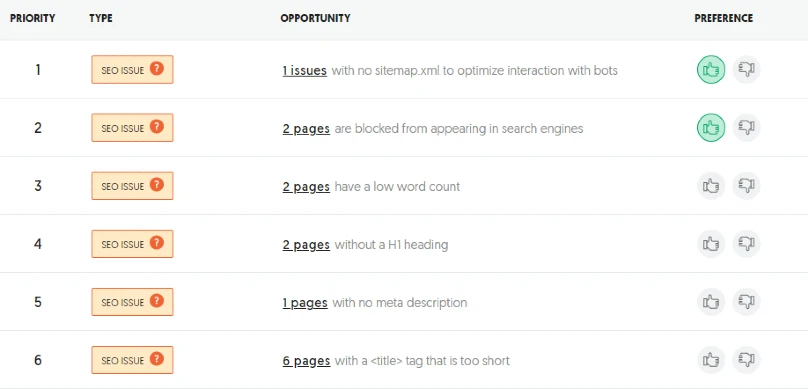
On the other hand, businesses that have lost their visibility tend to cost more, due to the amounts of research and edits that need to be made. For example, if a website has been hit by a Google update, restoring its traffic and visibility requires extensive amounts of time. This includes investing in recreating content, creating new pages, and spending a significant amount of time cleaning the website. In some cases, businesses get rebranded, and their entire content structure gets erased, leaving no trace of the previous website.
Website CMS and Existing Content
Websites with a well-structured CMS, such as WordPress or Drupal, make it easier for SEO professionals to optimize content and make technical adjustments. Nowadays, WordPress powers more than 43% of websites all over the world, making the market more competitive and less pricey than before. Nonetheless, in most cases local SEO agencies prefer to get credentials and work directly on WP-powered websites, taking the work off your hands.
However, with custom websites the pricing is different, and if the agency is required to make changes inside it, pricing can always differ. In most cases, it costs agencies to hire professionals, who are familiar with coding and have to make manual changes. While it’s a good investment in the long term, prices can go sky high, making your investments possible in shorter terms. It is even cheaper to get a hard-coded website transformed into a WordPress one for a fraction of the price it would cost for SEO services.
How much does Local SEO cost?
On average, local SEO can cost anywhere from $500 to $2500 per month, depending on your geographical location.
The main factors, contributing to your local SEO estimate are the type of business, the state of your website, and finally, your requirements from the agency.
Typically, small business owners prefer paying smaller amounts for local SEO services, which include the following:
- On-page optimization (Multiple-location optimization, content creation)
- WordPress maintenance
- Backlink profile management
- Google Business Profile management
These 4 services can cost local business owners anywhere between $500 to $800 (with fewer tasks dedicated).
Not to forget that local link building is a very hard service. In most cases, the local links built are either business listings or guest posts from less popular sites. The price per local backlink can be very high for small business owners and is not often the best solution when starting.
What do Local SEO Plans Include?
SEO Strategy
Every optimization starts with a strategy and a plan to execute it. By taking the factors that influence the price of local SEO, any consultant can estimate how long it should take to start ranking keywords. In many cases, these estimates are broken down by seasons. Most professionals create goals for each season, achieved by executing monthly strategies.
For clients who prefer to pay monthly retainers, these seasonal strategies are most effective, as they are bound by a legal contract. Each month these strategies are sent out to the SEO and SEM team, which are later transformed into easy-to-read local SEO reports with monthly performance data.
Content Creation
Creating website content is one of the hardest to price, as it is based on many factors. For example, crafting random content can cost you anywhere between $20 to $50 per piece, but the results will be poor. A reason for that is the lack of strategy in creating valuable pieces of content, which can be added to the blog.
By working with an SEO agency or freelancer with expertise in your niche, the process will be very much different, along with the price. While you are expected to pay for content creation, the price will be much higher, but include these key services:
- Topical map that will have important keywords researched based on difficulty scores, and chances to rank high in the local SERP.
- Professional writers and experts in the field of business who will assist in the content creation phases for crafting trustworthy and authoritative content.
- Carefully chosen topics, will not cannibalize already existing pages, causing loss of keywords and loss of rankings.
- Linkworthy content, which could provide valuable information to other bloggers for providing your website with valuable backlinks.
- Unique images and infographics, which are crafted by professionals, and not acquired from stock image websites.
With these factors, the prices usually start at higher rates than your usual freelance SEO expert, or freelance copywriter. Since they can only create content based on your website, they charge you only for their part. Researching content, creating images, and the rest of the work falls under the business manager.
On-Page Optimization
On-page optimization refers to the process of making improvements and adjustments to a website’s web pages to improve its search engine rankings and attract more organic traffic. The process involves optimizing various elements on a page, such as the title tags, meta descriptions, and URL structure, to make them more relevant and appealing to both users and search engines. Additionally, on-page optimization may also involve recreating low-performing content to make it more valuable and engaging for visitors.

Usually, on-page optimizations include UI/UX changes, which aim to simplify the website’s structure and make it easier to interact with. A reason for that is the ongoing process of keeping visitors engaged with the website, without confusing them and having them leave. While websites filled with content and less-visuals are hard to read and are less appealing, those who have a healthy mix of imagery and text content intend to perform better. However, these changes require constant A/B testing, and make takes months to find what works for each business niche.
Google Business Profile Optimization
Google Business Profile Optimization is the process of enhancing and improving the visibility and performance of a business’s Google My Business listing. It includes managing and updating important information such as business hours, location, contact details, and website, as well as posting engaging content, and images and responding to customer reviews.
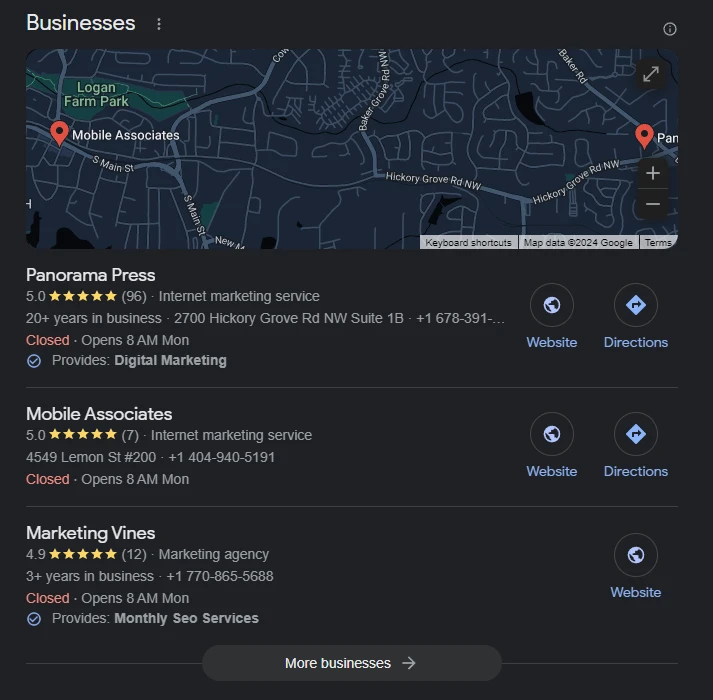
Google Business Profile listing is crucial for businesses to attract more customers and increase online presence. It helps in boosting rankings in search results, making it easier for potential customers to find and interact with the business. Regardless of the price range, optimizing a Google Business Profile can provide great value in terms of improved visibility, customer engagement, and appearance in the Google local pack.
Some companies may offer basic optimization services starting at around $100, while others provide more comprehensive and specialized services charging anywhere from $500 to $2000 or more. The pricing range typically takes into account factors such as the size and complexity of the business, the competitiveness of the industry, the level of customization, and the ongoing maintenance required.
Link Building
Link building refers to the process of acquiring hyperlinks from other websites to your own site. It includes various types of links such as natural links, manual outreach links, self-created links, and non-editorial links. The goal of link building is to increase traffic, improve search engine rankings, and establish the authority of a website.
There are numerous strategies for link building including guest posting, broken link building, and creating valuable content that naturally attracts links. The price per link can vary greatly depending on the quality and authority of the linking site, as well as the relevance of the link to the target site. It is important to consider the trade-off between quality and quantity links. While a high volume of links may seem beneficial, low-quality or spammy links can harm a website’s rankings.
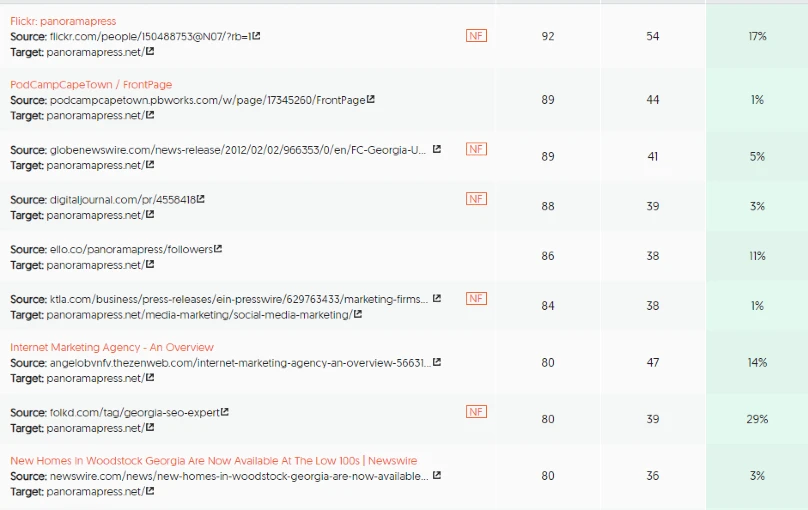
The usual price of a low authority backlink can be seen as low as $30 per link, while websites like the New York Times and Forbes charge anywhere between $3000 to $5000 per link. Authority and traffic play a significant role in pricing backlinks. Their authoritative power is beneficial to your website’s ranking in the SERP for the long term.
Working with a digital agency like ours grants you proper pricing and budget for building local backlinks (citations).
Technical SEO and Website Optimization
Technical SEO includes a range of tasks and optimizations that focus on the back end of a website to improve the user and crawler experience. It includes placing metadata, such as title tags and meta descriptions, to ensure they are optimized for better click-through rates. Technical SEO also involves optimizing website speed, which includes minimizing code, leveraging browser caching, and utilizing content delivery networks (CDNs) to improve loading times.
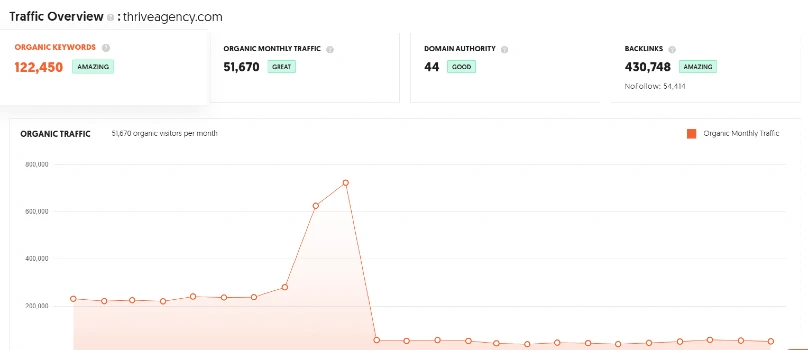
Additionally, technical SEO includes improving mobile-friendliness, implementing structured data markup, optimizing site architecture, fixing crawl errors, and enhancing website security. These technical optimizations are crucial for ensuring that search engines can properly crawl and index a website, helping bots to efficiently crawl more pages.
Freelancer or Agency for Local SEO?
When it comes to local SEO, deciding between hiring a freelancer or an agency can be a tough choice. Freelancers can be appealing because they often charge lower rates and can focus solely on your project, but they may be limited in their abilities and commitment to your project. While agencies may be more expensive, they have a team of experts who can handle all aspects of SEO, from keyword research to content creation and link building.
Agencies are also more likely to have experience working with a variety of clients and industries, giving them a broader understanding of what works and what doesn’t. Another thing to take in mind is that freelancers can do one job only, while agencies take all the work and provide a more comprehensive approach to improving your local search rankings. However, it’s important to note that not all agencies are created equal, and it’s crucial to thoroughly research and vet any agency before hiring them. In the end, the decision between hiring a freelancer or an agency for local SEO will depend on your specific needs, budget, and timeline. In general, the extra investment in an agency is often worth it for the increased expertise and consistent results.
Can I do Local SEO?
You can certainly do local SEO on your own, but there are some risks and factors to consider before you dive in. The risks of doing local SEO on your own include potentially making mistakes that could harm your website’s ranking, such as over-optimizing your site or using black hat tactics. You may also struggle with keeping up with the ever-changing algorithms and best practices of search engines.
It’s important to take into consideration your level of expertise and time commitment before diving into SEO on your own. Factors you need to take into consideration include your knowledge of SEO best practices, your ability to stay updated on the latest trends, and the amount of time you can realistically devote to SEO efforts. It’s also important to consider whether you have the resources and tools needed to effectively implement a local SEO strategy. While doing local SEO on your own can be a cost-effective option, it’s important to carefully weigh the risks and factors involved to ensure success in your SEO efforts.
